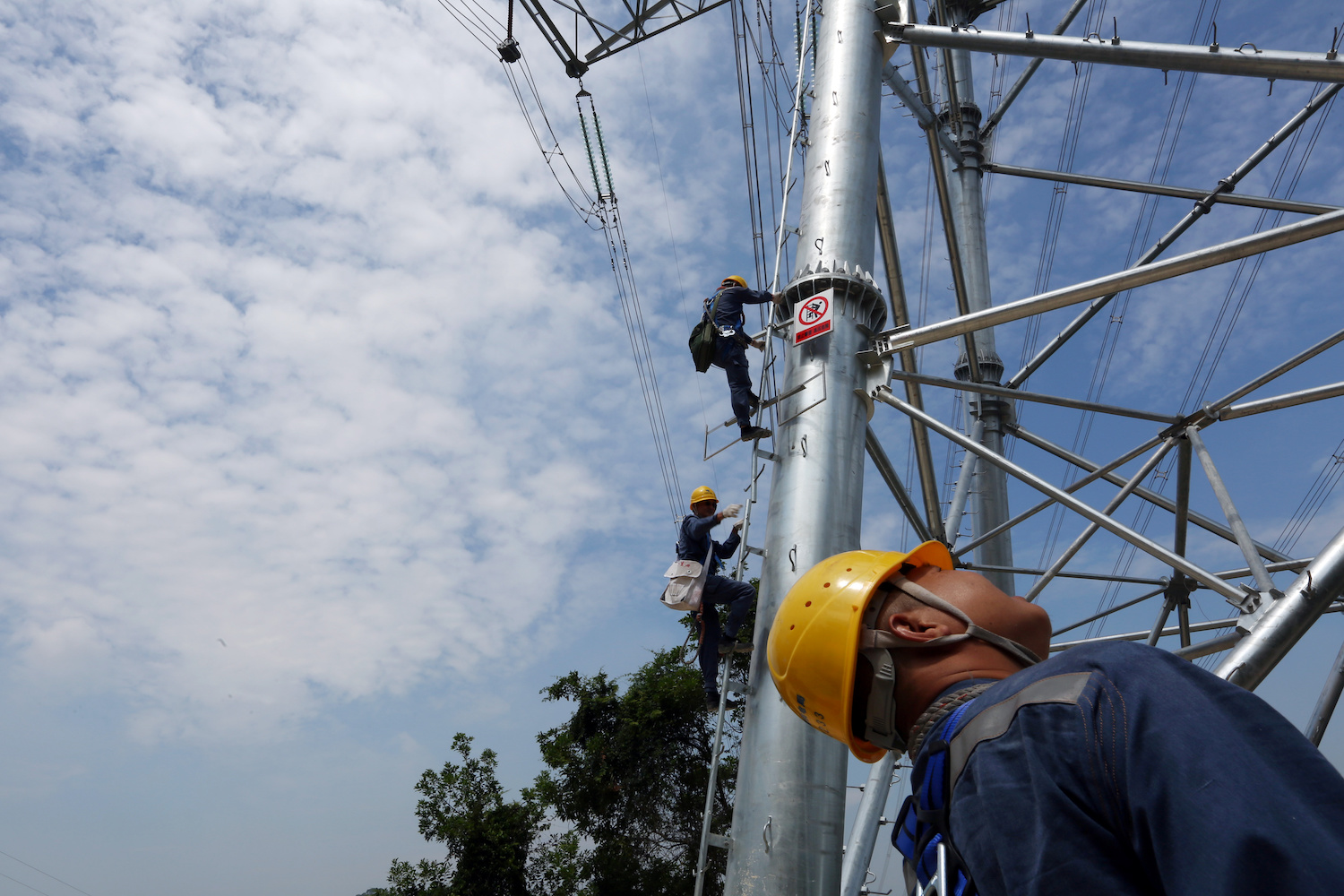(ATF) As tens of millions across China are facing power shortages in below-freezing winter temperatures, a debate has emerged over the impact of Beijing’s ban on imports of Australian coal.
Residents, factories and businesses in the populous and highly industrialised provinces of Hunan, Zhejiang and Jiangxi provinces have been ordered to ration electricity with some areas citing a shortfall in coal supplies, according to official media.
State Grid Corporation of China, the country’s biggest utility, said on Friday it would take a series of measures to ensure reliable power supply amid shortages in southern regions following a drop in temperatures.
Earlier this month, Hunan authorities ordered all billboards and outdoor lighting on buildings to power off for long periods each day and a temperature cap on indoor heating at entertainment venues. Hunan faces a shortfall of 3-4 million kilowatts of electricity this winter, local officials admitted last week, as demand soars due to unusually cold weather that will hit as low as minus 10 degrees Celsius.
While Australian media gloated over China’s apparent own-goal over coal imports, National Bureau of Statistics data indicate Australian coal accounted for only about 3 per cent of last year’s total coal imports of 265 million tonnes.
Yan Qin, carbon analyst at financial data service Refinitiv, told the AFP news agency that the ban would have little effect. “The Aussie ban only had little impact on China’s thermal coal supply,” he said. “But China-Australia tensions have caused significant worries in the commodities markets, driving up domestic coal prices.”
High-quality fuel
However, a director at China Huadian Corporation, one of the nation’s largest energy groups, told the Financial Times that “the import curb is enough to change the industry landscape,” adding: “Many local power plants depend on Australian coal and now they are having trouble finding an alternative.”
Australian coal exports to China were formally blocked on December 12 after months of import restrictions that have thrown the $14 billion export industry into turmoil. The exported coal is considered one of the highest quality fuels for power plants.
“Australia’s coal is of a particularly high quality and efficiency and restrictions on imports is leaving them without sufficient alternative supplies,” said John Hardy, a strategist at Saxo Bank in Copenhagen. “A colder than normal winter in some areas of China and the strong bounce back from the Covid-19 pandemic are also partly to blame.”
Office workers have complained on social media about being forced to climb dozens of flights of stairs and freezing indoor temperatures as a result of frequent power outages. “My office heating has already been stopped, and there were blackouts on December 1, 3 and 5. Temperatures will drop to minus 8 degrees around New Year’s Day, will I freeze to death in Hunan,” one Weibo user wrote last week.
Meanwhile in Zhejiang province, factories in the manufacturing hub of Yiwu have been told to stop operations and street lights have been turned off at night as part of an emissions-saving drive by the local government, according to media reports and photos circulated on Weibo.
China – by far the world’s biggest consumer of coal – is pivoting to renewable energy sources to meet a pledge to peak carbon emissions by 2030 and reach carbon neutrality by 2060. While ditching coal would make sense, analysts doubt the country is ready to start turning off fossil fuel power plants.
Souring relations
However, Canberra and Beijing have seen their relations plunge to near all time lows in terms of trust and China is intent on punishing Australia for suggesting an international inquiry into the origins of the coronavirus pandemic, which is widely believed to have begun in Wuhan last year.
China has banned, delayed or restricted a number of Australian imports, from coal to lobsters and cotton. “Australia’s coal shipments to China have fallen sharply in recent months as trade tensions have continued to escalate,” said Ben Udy, Australia and New Zealand economist at Capital Economics
“While we still expect iron ore and liquefied natural gas exports to be spared, we estimate that exports to China now facing restrictions account for nearly 2% of Australia’s output. That’s one reason why [Australia’s gross domestic product ] may never return to its pre-virus path.”
Now China might be threatening its own economic growth, although China’s top economic planner, the National Development and Reform Commission, on Monday sought to reassure the public by saying the electricity supply is “largely stable”, and pledged to increase generation capacity and coal procurement.
Separately, Venezuela has resumed direct shipments of oil to China after US= sanctions sent the trade underground for more than a year, according to Refinitiv Eikon vessel-tracking data and internal documents from state company Petroleos de Venezuela, Reuters reported.
In addition, China will fully lift access restrictions on foreign investment in coal, oil and gas, power generation as well as the new energy businesses, according to a government document released on Monday.
Reporting by Reuters, AFP
























